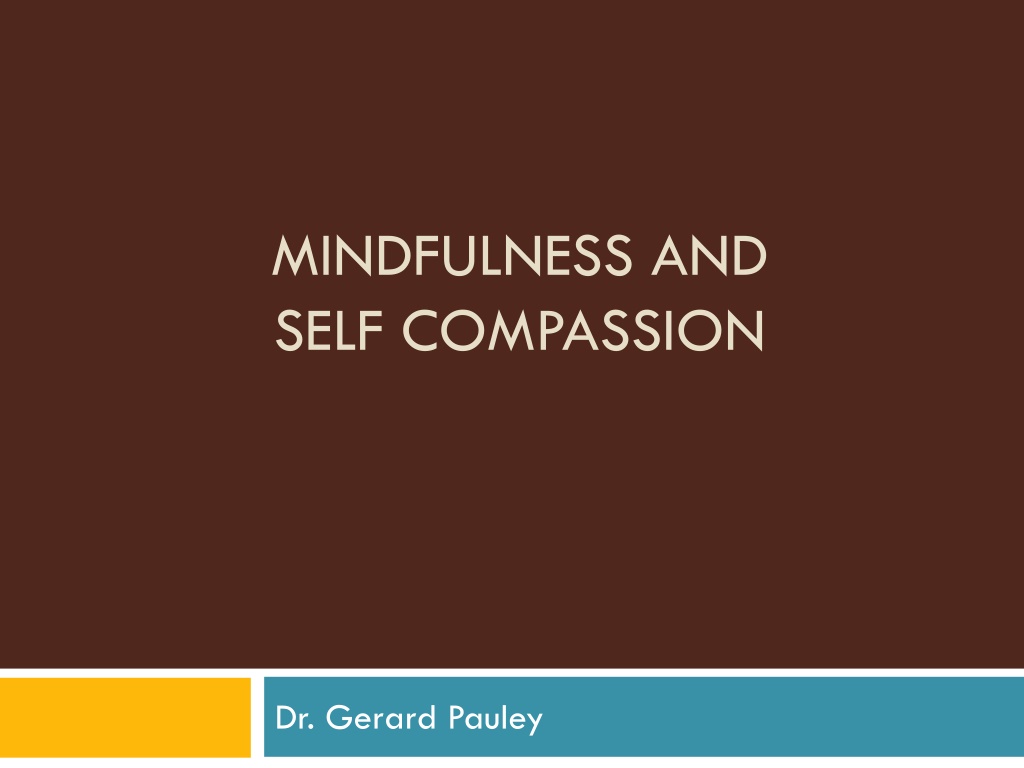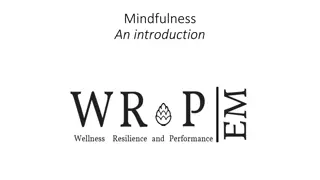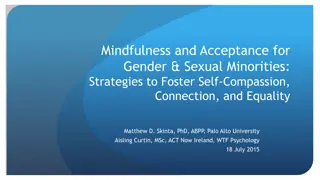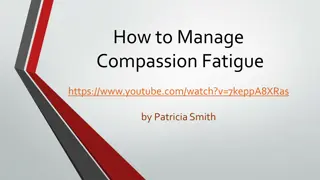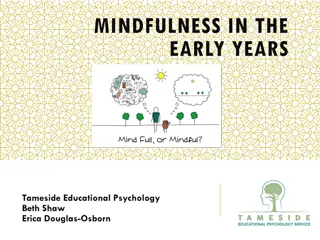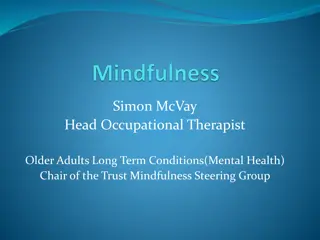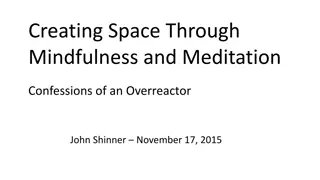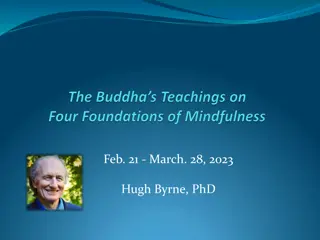Understanding Compassion-Focused Therapy and Mindfulness for Self-Compassion
Compassion-Focused Therapy (CFT) aims to address feelings of shame and self-criticism by developing positive emotions like safeness and soothing. Mindfulness plays a crucial role in this process, helping individuals become more compassionate towards themselves. The therapy draws from various perspectives including evolutionary, neurological, attachment theory, cognitive-behavioral, and mindfulness teachings. Key aspects include multiple processing systems, affect regulation, and targeting specific behaviors, emotions, and motivations. Compassionate Mind Training focuses on developing skills like warmth imagery, attention, reasoning, and sensitivity to foster self-compassion and well-being.
Download Presentation

Please find below an Image/Link to download the presentation.
The content on the website is provided AS IS for your information and personal use only. It may not be sold, licensed, or shared on other websites without obtaining consent from the author. Download presentation by click this link. If you encounter any issues during the download, it is possible that the publisher has removed the file from their server.
E N D
Presentation Transcript
MINDFULNESS AND SELF COMPASSION Dr. Gerard Pauley
Four Key Points What is Compassion Focussed Therapy? Why is being mindful important to the process of becoming compassionate to self? How do we model and provide the care and attention required for this process? What is the future in this area? 1) 2) 3) 4)
Compassion Focussed Therapy Evolved out of regular reports of incongruence: I can think that I am okay, but I don t feel it. Developed to target shame and self-criticism (internal & external threats) Focus on developing positive emotions, e.g., safeness, soothing. Considers a range of perspectives including: evolutionary, neurological, attachment theory, cognitive-behavioural, and mindfulness (Buddhist).
Multiple Processing Systems Basic Emotional Regulation Social Mentalities Cognitive Systems Self-Identity
Three Types of Affect Regulation System Content, safe, connected Driven, excited, vitality . Non-wanting/ Affiliative-focused Incentive/resource- focused Safeness-kindness Wanting, pursuing, achieving, consuming Soothing Activating Threat-focused Protection and safety-seeking Activating/inhibiting Anger, anxiety, disgust
Stimulus-Response Sexual Bully-threat Meal Sex Meal Kind, warm and caring Bully- threat Limbic system Compassion Soothed Safe Stomach acid Fearful Arousal Saliva Depressed
Key Targets of Therapy Thinking Reasoning Attention Imagery Fantasy Behaviour Emotions Motivation
Key Targets of Compassion Thinking Reasoning Attention Imagery Fantasy Compassion Behaviour Motivation Emotions
Multi-modal Compassionate Mind Training SKILLS TRAINING Warmth Warmth Imagery ATTRIBUTES Attention Reasoning Sympathy Sensitivity Distress tolerance Compassion Care for well-being Feeling Behaviour Empathy Non-Judgement Sensory Warmth Warmth
Contrast of a Competitive Mind SKILLS -TRAINING Imagery ATTRIBUTES Attention Reasoning Envy Sensitivity Distress tolerance Competition Compete Feeling Empathy Behaviour Judgemental Social Comparison Sensory
The Importance of Mindfulness Helps to counter the trivialisation of changing the relationship with self. Developing self-compassion requires a wise space. This space is one in which people can try out a different relationship with self: you would not embark on this process without being able to adopt a different stance to it.
The Importance of Mindfulness Question: What happens when you just sit with yourself? Question: How might you go about learning to sit with yourself? Once you can do that you can: Reflect rather than avoid your experiences Develop a different perspective Accept the emotions and thoughts that arise Have a relationship between you and your mind
Encouraging a Compassionate Mindfulness Mindfulness The truth of self-experience. Validating the uniqueness of the experience. Providing a rationale for Mindfulness. Self Compassion The underlying approach of CFT: demonstrating compassion in session. The attributes we endeavour to teach should be engendered in session. Toe-dipping to full emersion with kindness and support.
The Future Accessibility of Mindfulness & Compassion. Encouraging structural change: Compassionate communities. Refocusing on the process of therapy: How I am with you helps you to change. Evolution of new therapeutic techniques informed both by science and clinical experience.
